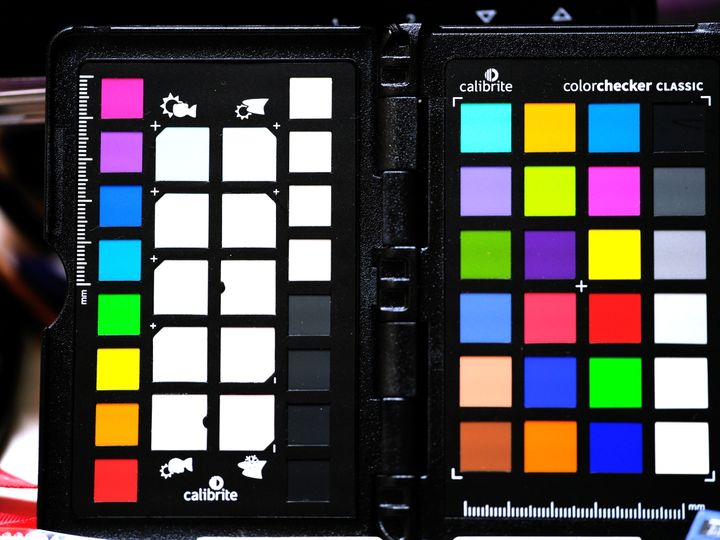QT 20/05/2025 Tue. Jeremiah 8. Mental health: Why do people reject healing? 心理健康: 为什么人们拒绝医治?

QT 20/05/2025 Tue. Jeremiah 8. Mental health: Why do people reject healing?
READ http://www.esv.org/jer8
Why do people reject healing? Jeremiah 8 continues the themes of grief, judgment, and the heartbreak of a people who persist in sin despite repeated warnings.
Scripture: Jeremiah 8:22 Is there no balm in Gilead? Is there no physician there? Why then has the health of the daughter of my people not been restored? (ESV)
❓REFLECTION: Jeremiah 8 captures the deep sorrow of a prophet watching his people reject God's call to repentance. The chapter is filled with grief, confusion, and divine lament over a nation that could be healed but refuses the cure.
Lesson 1: A People Who Will Not Turn Back
“They cling to deceit; they refuse to return.” (v. 5). Despite countless warnings, Judah would not turn back to God. They chose deception over truth, clinging to sin instead of falling on God's mercy. Jeremiah's heart breaks, not only because of the sin, but because repentance was still an option—and they rejected it.
🚴🏻♂️ Application: How often do we cling to what’s familiar, even when it’s hurting us spiritually? God's grace remains available, but we must respond to it in faith and humility.
Lesson 2: False Peace and Spiritual Blindness
“‘Peace, peace,’ they say, when there is no peace.” (v. 11) The leaders and prophets of the day were giving people false assurance. Rather than confronting sin, they were soothing it with lies. This led to complacency and spiritual blindness.
🚴🏻♂️ Application: The gospel is not good news without repentance. We must not cover sin with empty positivity. Only truth leads to healing. Today's "spiritual physicians" might be many, but we must give weight to those who expose sin and darkness defined by the Word of God. It takes courage, selflessness and wisdom to be a true spiritual companion to those around us. But there is no other way.
Lesson 3: The Grief of God and His Prophet
“Since my people are crushed, I am crushed; I mourn, and horror grips me.” (v. 21) Jeremiah is often called the "weeping prophet," and here we see why. He shares in God's sorrow. This isn't just anger or judgment—it's the pain of love rejected.
🚴🏻♂️ Application: Do we grieve over sin—our own and the world's? Does our heart break over those who are lost, or have we grown numb?
Lesson 4: The Question That Still Echoes
“Is there no balm in Gilead? Is there no physician there?” (v. 22) This rhetorical cry points to a tragic truth: there is a balm, but the people refuse it. Gilead was known for healing ointments, symbolizing God’s power to restore. But healing cannot help those who won’t receive it.
New Testament Parallel:
Jesus is our Great Physician (Mark 2:17). He came for the sick—those who know their need. The “balm in Gilead” is ultimately fulfilled in Christ, who brings eternal healing through His blood.
Reflection Questions:
(1) Am I refusing the healing God offers me in an area of my life?
(2) Have I grown used to false peace, or do I let God’s truth convict and correct me?
(3) Do I mourn for the spiritually lost and pray for their salvation?
🙏🏻 Prayer: Lord, You are the balm for every broken heart and the physician for every sin-sick soul. Forgive us when we resist Your healing. Make our hearts tender to Your Spirit. Help us mourn over sin and rejoice in Your grace. We need You. Come and restore what is wounded and lost. In Jesus' name we pray. Amen.
QT 20/05/2025 星期二. 耶利米书 8. 心理健康: 为什么人们拒绝医治?
阅读 http://m.bbintl.org/bible/ncv/Jer/8/
人们为什么拒绝医治?耶利米书 第 8 章延续了悲伤、审判的主题,以及尽管一再警告,但仍坚持犯罪的人们的心碎。
经文: 耶利米书 8:22 难道基列没有乳香吗?难道那里没有医生吗?我的同胞(“同胞”原文作“人民的女子”)为什么总不痊愈呢?
❓反思:耶利米书第 8 章形容一位先知看着他的子民拒绝神悔改的呼召时深深的忧伤。这一章充满了悲伤、困惑,以及对这个本可医治却拒绝治疗的民族的神性哀叹。
学习(1):不肯回头的民族
“这人民为什么背道,耶路撒冷为什么长久偏离?他们定意行诡诈,不肯回转"(第 5 节)。尽管有无数的警告,犹大还是不愿回头归向上帝。他们选择欺骗而非真理,紧紧抓住罪恶而非上帝的怜悯。耶利米的心碎了,不仅是因为罪恶,还因为悔改仍然是一种选择--但他们拒绝了。
🚴🏻♂️ 应用: 我们有多少时候会紧紧抓住熟悉的东西不放,即使它正在伤害我们的灵性?上帝的恩典依然存在,但我们必须以信心和谦卑来回应它。
学习(2):虚假的平安和属灵的盲目
“平安了!平安了!” 其实没有平安 (第 11 节)。当时的领袖和先知给了人们虚假的保证。他们不是直面罪恶,而是用谎言来安抚罪恶。这导致了自满和属灵的盲目。
🚴🏻♂️ 应用 : 没有悔改,福音就不是好消息。我们不能用空洞的积极性来掩盖罪恶。只有真理才能带来医治。今天的 “属灵医生” 可能有很多,但我们必须重视那些揭露上帝的话语所定义的罪恶和黑暗的人。成为身边人真正的精神伴侣需要勇气、无私和智慧。但除此之外,别无他法。
学习(3):上帝及其先知的悲伤
“因着我的同胞( “同胞”原文作 “人民的女子” )被压碎,我的心破碎了;我悲伤痛哭,惊慌抓住了我"。(第 21 节)耶利米常被称为 “哭泣的先知”,在这里我们看到了原因。他与上帝同悲。这不仅仅是愤怒或审判--这是爱被拒绝的痛苦。
🚴🏻♂️ 应用: 我们是否为自己的罪和世人的罪而悲伤?我们是否为那些迷失的人心碎,还是已经变得麻木?
学习(4):仍在回响的问题
“难道基列没有乳香吗?难道那里没有医生吗?我的同胞(“同胞”原文作“人民的女子”)为什么总不痊愈呢?(第 22 节)这一反问式的呼喊指出了一个悲剧性的事实:有药膏,但人们拒绝它。基列因医治的药膏而闻名,象征着上帝修复的大能。但是,对于那些不愿意接受医治的人,医治是无济于事的。
《新约》的相似之处:
耶稣是我们的大医生(马可福音 2:17)。祂是为病人--那些知道自己需要的人--而来的。“基列的香膏” 最终在基督身上实现,祂通过自己的宝血带来了永恒的医治。
思考题
(1) 在我生命中的某个方面,我是否拒绝神给我的医治?
(2) 我是否习惯了虚假的平安,还是让神的真理来定罪和纠正我?
(3) 我是否为灵命失丧的人哀悼,并为他们的得救祷告?
🙏🏻祷告: 主啊,你是每一颗破碎心灵的良药,是每一个患病灵魂的医生。当我们抗拒你的医治时,请饶恕我们。使我们的心对你的灵温柔。帮助我们为罪哀悼,在您的恩典中喜乐。我们需要你。来修复我们受伤和迷失的心灵。奉耶稣的名祷告。阿门 。


